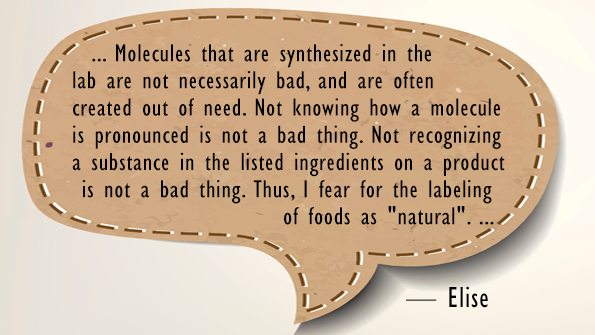How should we define ‘natural’? The public responds
The use of the word "natural" in foods, I fear, will become a scare tactic leading to an anti-science frenzy in America. Already, the public and the media fear terms such as "genetic engineering", "genetically modified organisms", and "non-organic." In reality, many of these technologies are not harmful to consumers and should not be treated like unnatural or harmful techniques.
Many organisms arise from genetic engineering: selective breeding of apples leads to better, crispier apples; strawberries are made to grow bigger; rice is modified with minerals to benefit those who may not be getting the right amount of nutrients. All of these are beneficial to people who may be malnourished, unable to grow a good crop, or plagued with bad apples. And many of these foods are not known to people. Some of these foods arise through accident via cross-pollination and some are purposefully engineered. Both are not necessarily detrimental to humans, but both can be considered "unnatural". I accidentally cross pollinated a pumpkin with a squash this past summer: unnatural, yes, but bad? Not necessarily. Does this food now need to be labeled as unnatural?
Molecules that are synthesized in the lab are not necessarily bad, and are often created out of need. Not knowing how a molecule is pronounced is not a bad thing. Not recognizing a substance in the listed ingredients on a product is not a bad thing. Thus, I fear for the labeling of foods as "natural". Natural does not equal good for you. There is often a reason that additives have been added to foods. Some people may balk at extra amounts of corn syrup or preservatives added to food, but they are not added superfluously. I am against the labeling of foods as "natural" in cases such as these. The use of pesticides is not bad, the use of genetic technology is not bad, and I fear for the association that may arise between "natural foods" and "good for you foods."
—Elise (consumer)
